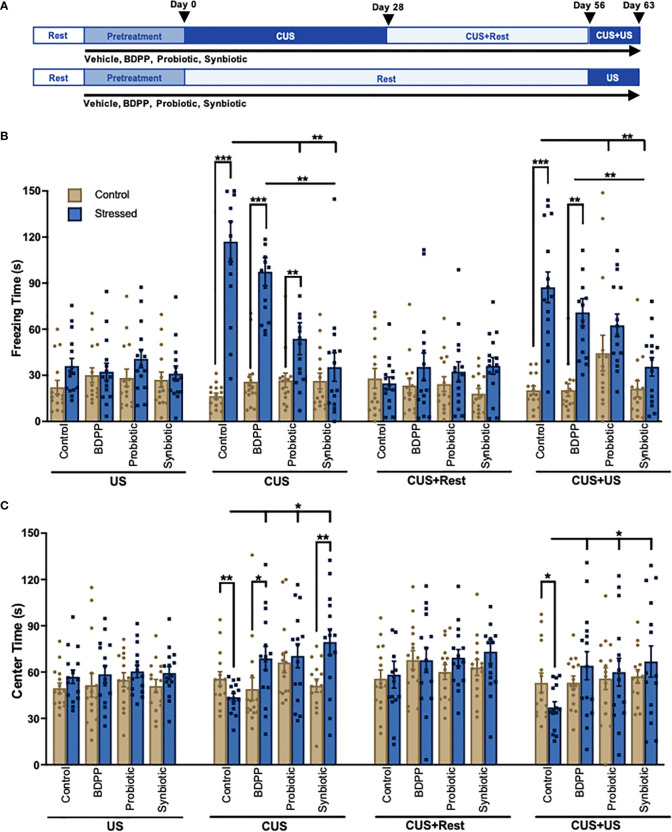Figure 1.
A Synbiotic Attenuates Chronic-Stress Induced Psychological Deficits. (A) Chronic and recurrent stress are modelled using the chronic unpredictable stress (CUS) protocol. Following 2 weeks of rest and 2 weeks of pretreatment with the BDPP, probiotics or synbiotics, mice are exposed to 28 days of random mild unpredictable stressors (CUS) following by 28 days of rest (CUS+Rest) and a re-stimulation of 7 days of unpredictable stress (US) modelling recurrent stress (CUS+US). The final CUS+US timepoint can be compared to the 7-day subthreshold US. Each group contained n = 16 animals. Behavior phenotypes were assessed using the (B) forced swim test for depressive-like behavior and (C) open field test for anxiety-like behavior where for each group there are n = 16 mice +/- SEM and significance is determined with a two-way ANOVA and Tukey’s post-hoc analysis. DC, dendritic cell; ILC, innate lymphoid cell; BC, B cell; Treg, regulatory T cell; Th17, T helper 17 cell; TNFβ, tumor necrosis factor β; TLR4, toll-like receptor 4; NFκB, nuclear factor kappa light chain enhancer of B cells; Casp1, caspase1; IL-1β, interleukin 1 beta; CCL2(MCP1), monocyte chemoattractant protein 1; CCL5(RANTES), C-C motif 5; ICAM, intercellular adhesion molecule; VCAM, vascular cell adhesion molecule. In all cases, *p < 0.05, **p < 0.01, ***p < 0.001.

